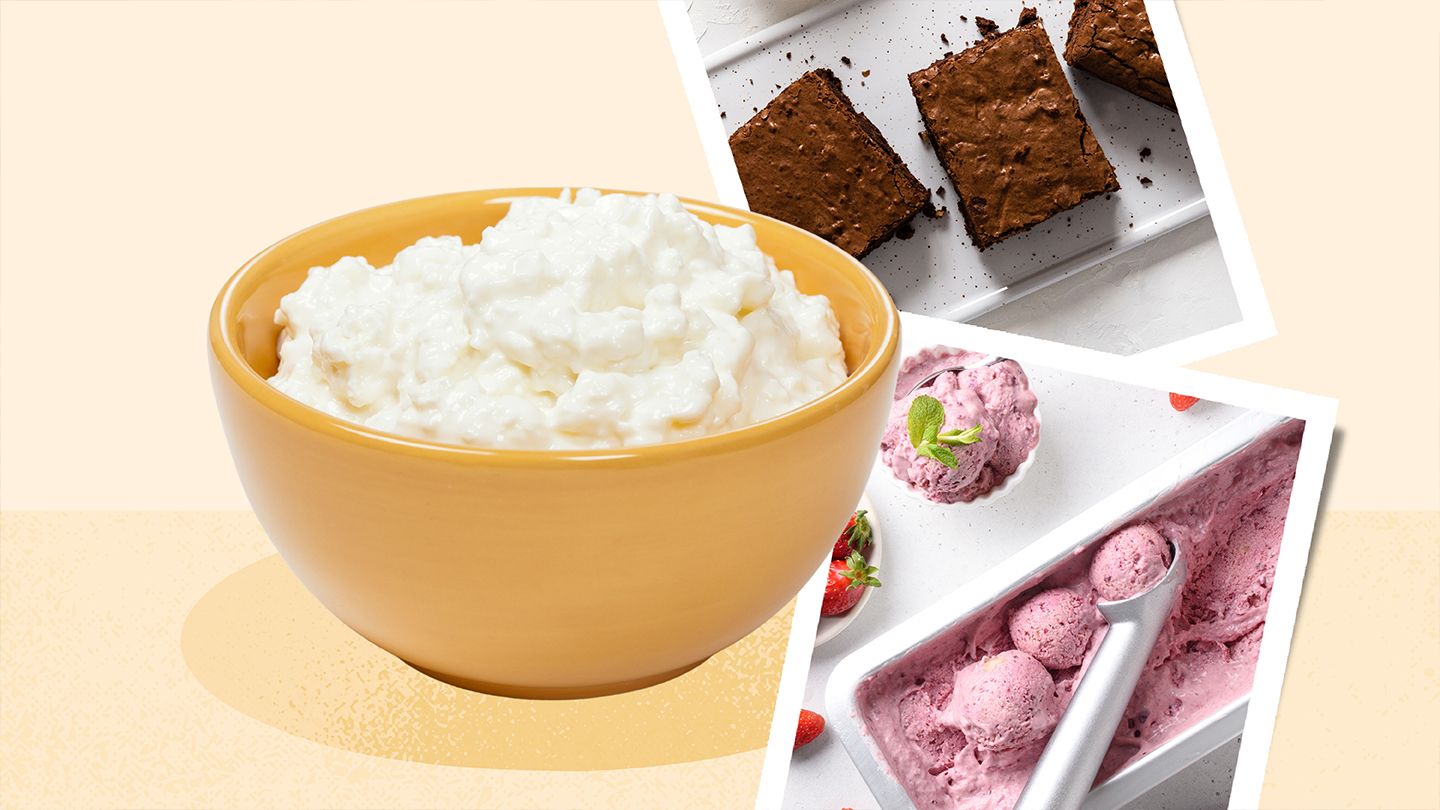Understanding Cottage Cheese Nutrition Facts
Cottage cheese has long been touted as a dieter's staple. Low in carbohydrates and calories but still creamy and satisfying, many health-conscious people rely on cottage cheese's versatility and protein content to help meet their nutritional goals.
But most consumers are unaware of exactly how many calories are actually found in cottage cheese. Before relying on this ingredient as a go-to food, it's valuable to examine the calorie count and full nutrition profile of cottage cheese more closely.
Caloric Content of 1 Cup of Cottage Cheese
A single cup serving of cottage cheese measuring 226g on average contains:
- About 163 calories
- Around 13 grams of protein
- Roughly 5 grams of fat
- Approximately 4 grams of carbohydrates as lactose
With well over half the calories coming from its ample protein, it's easy to understand what makes cottage cheese a popular choice in many nutrition plans aiming to preserve or build lean muscle mass.
Breaking Down the Macronutrients
Taking a closer look at cottage cheese's macronutrient distribution:
- Protein = 13g or 32% daily value
- Fat = 5g or 8% daily value
- Carbs = 4g or 2% daily value
This breakdown demonstrates why diets like the paleo, keto, and Atkins diets often rely heavily on cottage cheese as well.
With over 30% of its calories deriving straight from muscle-preserving protein and minimal carbs or sugar, cottage cheese can be an optimal source of sustenance without disrupting ketosis or low carb nutrition goals.
Vitamins, Minerals and Micronutrients
In addition to its macronutrient power, here is the typical vitamin, mineral and micronutrient value found in 1 cup serving of cottage cheese:
- Calcium = 138mg or 14% DV
- Phosphorus = 253mg or 25% DV
- Sodium = 469mg or 20% DV
- Selenium = 34mcg or 50% DV
- Vitamin B12 = 1mcg or 21% DV
As aminimally processed dairy product, cottage cheese does retain more naturally occurring micronutrients like calcium and selenium versus more heavily processed commercial cheeses.
Cottage Cheese versus Other Dairy Products
Compared to yogurt, sour cream, cream cheese or even cheddar cheese, cottage cheese consistently comes out on top in terms of protein content and proportion of calories specifically from protein:
| Dairy Product | Calories in 1 Cup | % Calories from Protein |
|---|---|---|
| Low Fat Cottage Cheese | 163 | 32% |
| Plain Low Fat Yogurt | 154 | 24% |
| 2% Milk | 122 | 25% |
| Cream Cheese | 810 | 4% |
| Sour Cream | 215 | 4% |
With milk and yogurt trailing by only single digits in protein density, most other dairy items don't even come close to matching cottage cheese in terms of its rich protein concentration.
Tips for Incorporating Cottage Cheese into a Health Supporting Diet
Want to make sure that your cottage cheese habit is truly helping you meet your health goals? Follow these simple guidelines.
Seek Out Low Sodium Varieties
With heart disease remaining a leading health threat, be mindful of choosing cottage cheese options labeled low sodium whenever possible. This makes cottage cheese easier to enjoy frequently while controlling overall sodium consumption.
Pair with Fruit and Nuts
Top your cottage cheese with berries, sliced almonds, walnuts or antioxidant rich pineapple to add extra fiber, vitamins and healthy fats into your snacks or light meals.
Add to Green Salads
Incorporate crumbled cottage cheese over leafy green salads made from nutrient powerhouses like spinach, kale or arugula. The contrasting textures takes salads to the next level.
Use in Place of Ricotta
With fewer carbs and more protein than ricotta cheese, cottage cheese can seamlessly stand in for ricotta in recipes for lasagna, stuffed shells, manicotti or cheesecake.
Swap into Breakfast Bowls
Rather than yogurt only for breakfast, throw cottage cheese into your morning grain bowls, smoothies or overnight oats to amp up long lasting protein all morning long.
The Takeaway on 1 Cup of Cottage Cheese
With 163 total calories and over 13 grams of protein packed into each single cup serving, cottage cheese delivers on its reputation as dieter's staple. Choosing low sodium, keeping variety in your additions and finding simple swaps all ensures that cottage cheese keeps providing healthy support towards reaching your nutrition goals.
FAQs
Is cottage cheese considered a low calorie food?
Yes, with approximately 163 calories in a full single cup serving, cottage cheese is generally considered a low calorie food, especially in comparison to most other types of cheese.
Is the calcium in cottage cheese easily absorbed?
Yes, since cottage cheese is a fresh, minimally processed dairy food, the calcium it naturally contains, about 138mg per cup, is very bioavailable and readily absorbed during digestion.
Can I eat cottage cheese on a keto diet?
With only about 4 net grams of carbs and no sugar, cottage cheese can readily fit into a ketogenic diet. Just be mindful of choosing low fat or nonfat cottage cheese options.
What is the best cottage cheese to buy?
Choose cottage cheese marked low sodium and low fat or nonfat for optimal heart health support. Seek organic options when possible for minimal processing and hormone-free fresh dairy quality.
Disclaimer: This article is for informational purposes only and does not constitute medical advice. Always consult with a healthcare professional before starting any new treatment regimen.
Related Coverage
Insulin is an absolute necessity for people with type 1 diabetes, not an option. Increased awareness and support for affordability, accessibility and dietary needs....
What's the calorie count per tablespoon of cottage cheese? How does it fit into healthy diets? This article explores cottage cheese's nutrition stats and best uses....
A 5oz pour of dry red wine has around 3-5g net carbs typically. Sweet and sparkling reds are higher at 5-8g carbs per glass. Factors like wine style, grapes, and alcohol content impact carbs....
Atkins shakes can fit into keto diets in moderation. Learn how to incorporate them alongside nutritious keto foods, watch for excess protein, and supplement with healthy fats....
Apple juice is high in sugar and carbs so it does not suit a keto diet. Enjoy refreshing low-carb homemade juices with leafy greens, berries, citrus fruits, avocado, nuts instead....
Bloating can often be relieved through soups made with gut-healthy ingredients. Learn which soups can reduce bloat, and lifestyle tips to prevent it....
Find out how many grams are in 1 cup of carrots. Get nutrition info, cooking tips, health benefits, carrot conversions, recipes and more for adding carrots to your diet....
Learn which deli meats fit into keto diets and which to avoid. Get tips for picking quality, low-carb lunch meat slices without excess sugar or starchy additives....
Grapes are high in carbs and have a high glycemic index, making them unsuitable for the keto diet. Find out keto-friendly low carb fruit alternatives....
Discover when to take keto gummies for the perfect sweet indulgence while staying on track with your ketogenic lifestyle. Learn the benefits and strategic times to enjoy these delicious, low-carb treats....









